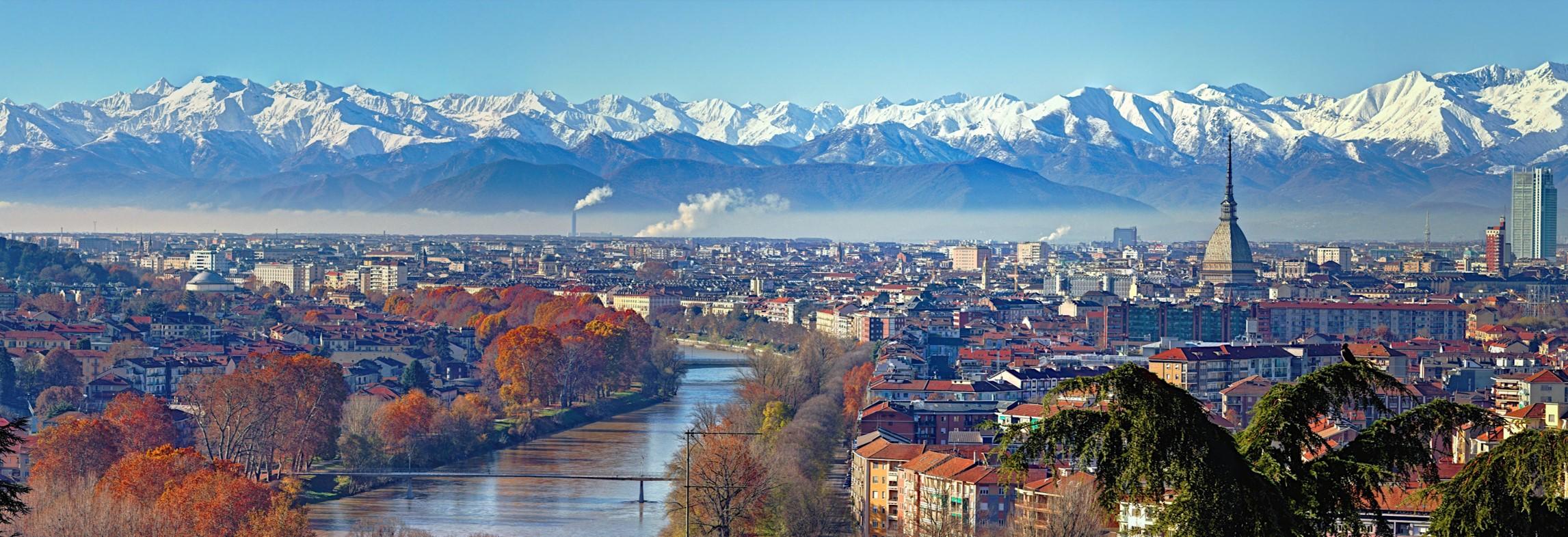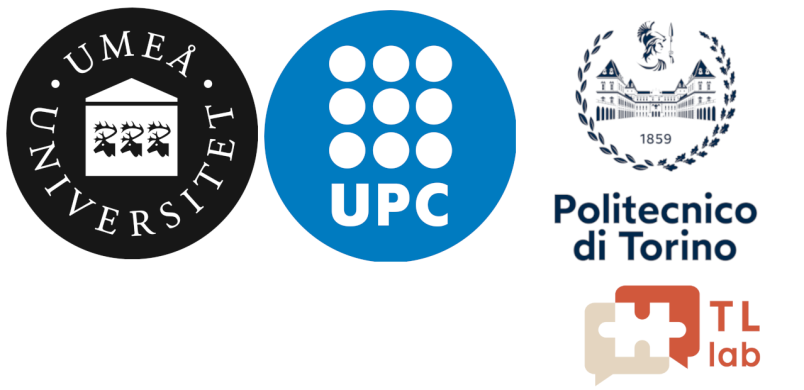
Partner Universities
- Politecnico di Torino - Collegio of Architecture (coordinator)
- Umeå University
- Universitat Politècnica de Catalunya
The Blended Intensive Program (BIP) is open also to students of the Unite! University Alliance.
Dates and location
- Virtual part: July 13-14, 2023
- In-person training: July 20-28, 2023 at Politecnico di Torino, Torino (Italy)
Course activities
General information
The BIP is open to 1st and 2nd year Bachelor students in Engineering and Architecture.
The program includes group discussions, collaborative work, practical experimentation, cutting-edge labs visits, social activities and more.
Courses and activities will be held in English.
Students completing the program will achieve 3 ECTS.
Participation to the BIP is free of charge. Mobility could be funded through the Erasmus+ program.
How to apply
Umeå University students: please contact prof. Irina Mancheva.
UPC students must contact their own university.
PoliTo and Unite! students: please send your application to heatLoss.bip@polito.it together with the following information:
- your first and family name
- Bachelor program, year of study (i.e. 1st or 2nd), and University you are enrolled in
- 2 documents in pdf format: a motivational letter and, if any, a list of previous experience in subjects related to the BIP topic.
Programme description
The main goal of this programme is to spread to students a systems-thinking and sustainability mindset. This is done by ensuring that they acquire the knowledge and skills required to understand and promote sustainable development in their field of future professional development. The programme includes a virtual and in-person part that will be organised at Politecnico di Torino, Italy. It is aimed at 1st and 2nd year Bachelor students enrolled at the three partner Universities (Umeå University, Universitat Politècnica de Catalunya, Politecnico di Torino) and at Unite! partner Universities. It promotes critical thinking and creativity on issues ranging from the energy performance of buildings, different methods to mitigate thermal transmittance, as well as multilevel governance strategies to achieve sustainability goals.
Since the architects and engineers of the future have to “think sustainably” from the very beginning, we want to provide them with the opportunity, the environment and the resources to develop a systems-oriented thinking which includes several real-life aspects: physics, engineering and the policy context. This will be done by presenting theoretical and real-life problems from multiple disciplinary angles, as well as potential solutions.
To achieve this goal a basic physics concept “Thermal Transmittance” will be used. Students will discover how this core concept and simple calculations can lead to important conclusions which might have a real-life impact. They will then be presented with the concept of “multilevel governance” with examples of how technical solutions are often hindered by or in conflict with different policy goals. Through group discussion, the students will reflect on how technical solutions might have an impact on global environmental, economic and social issues. The aim is to develop students’ abilities to recognise and understand the relationship between energy use, energy supply, environmental degradation and governing society towards a sustainable use of energy, as well as their critical thinking through acquiring an ability to question norms, practices and opinions, including their own.
As a result, students will become familiar with main aspects related to the United Nations Sustainable Development Goals (UN SDGs) and learn to analyse complex systems, understand how they are embedded within different scales and to recognise the uncertainty connected to the application of different solutions. The practical experiments and seminars will further develop students’ collaboration competencies and problem-solving abilities through learning from others and understanding and respecting the needs, perspectives and actions of others.
Expected Learning Outcomes
Students who have successfully completed the programme will be expected to :
- Learn how to extend numerical results from experiments on simplified models to quantitative estimates of global-scale quantities.
- Explore an innovator's mindset and a technology transfer attitude through a visit to a research centre where fundamental research and applied science meet.
- Describe and understand the complexity of energy use and the environmental problems connected to it, and the drivers of and societal solutions to global environmental change.
- Describe and understand concepts and theories that are central to the study of environmental governance, including sustainable development, multilevel governance, and the importance of institutions.
- Discuss the design and implementation of governance on different political levels, including the politics, polity and policy behind governing societies and the uncertainty behind (policy) solutions.
- Briefly describe the political system in the EU and explain how political decisions are made in a complex multilevel system.
Pre-requirements
Students who are enrolled in the first or second year of Bachelor programmes in Architecture or Engineering are eligible to apply for the BIP. Apart from motivation to think critically and creatively, there are no additional pre-requirements to attend the programme.
Course topics
- General introduction on the physics of the heat flow through the walls.
- (LAB) Experimental activity: measuring the Thermal Transmittance of a building model.
- From the experiment to global conclusions about CO2 emission and energy dispersion. Qualitative and quantitative evaluation of the impact of different insulation materials via toy-models.
- Design strategies to control energy performance of buildings
- Policy and global governance for sustainability: energy efficiency in buildings
- Multilevel governance: Role Play Game on decision making at the EU level.
- Visit to a laboratory engaged in innovative and cutting-edge technologies.
- Visit to PoliTo Facilities on thermal insulation research: DENERG HySyLab and CO2 Circle Lab: integrated laboratories for H2 and CO2 processes and technologies. DENERG HTC Lab (Lab for hygrothermal properties characterisation of materials and systems) and TWINS (Testing Window Innovative Systems).
Course examination
The learning outcomes will be assessed through assignments that students will complete during the course by meeting and collaborating both in virtual and in presence modalities plus an individual written assignment that the students must submit after the in-person part of the programme has ended (deadline for submission: August 25th, 2023).
Sustainable development goals
The course connects to the following United Nations’ Sustainable development goals:
7: Affordable and Clean Energy, (8: Decent Work and Economic Growth), (9: Industry, Innovation and Infrastructure), 11: Sustainable Cities and Communities, 13: Climate Action, (17: Partnerships for Goals)
Course structure
Students will be organised in transnational teams equipped with different skills and competences and will be engaged in small challenges/ tasks (2 autonomous tasks and 1 final assignment).
All the teams and the teaching staff will form an international and multidisciplinary research/learning environment that will face the tasks and the challenges along the course. Students will have the opportunity to interact with the cutting-edge knowledge and laboratories of the Universities involved in the programme.

Practical information
Information on short-term accommodation opportunities in Torino is available at https://www.polito.it/en/education/international-students/practical-information/accommodation.
As an alternative option, participants can refer to the private market (e.g AirBnB or similar online platforms).
BIP participants will have access to student restaurants/canteens in or near PoliTo campus at a discounted price.

Funded by the European Union. Views and opinions expressed are however those of the author(s) only and do not necessarily reflect those of the European Union or the European Education and Culture Executive Agency (EACEA). Neither the European Union nor EACEA can be held responsible for them.